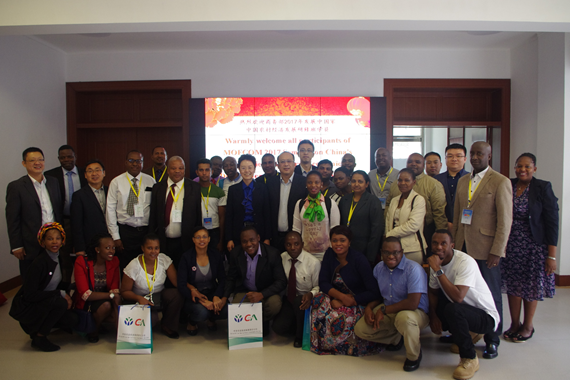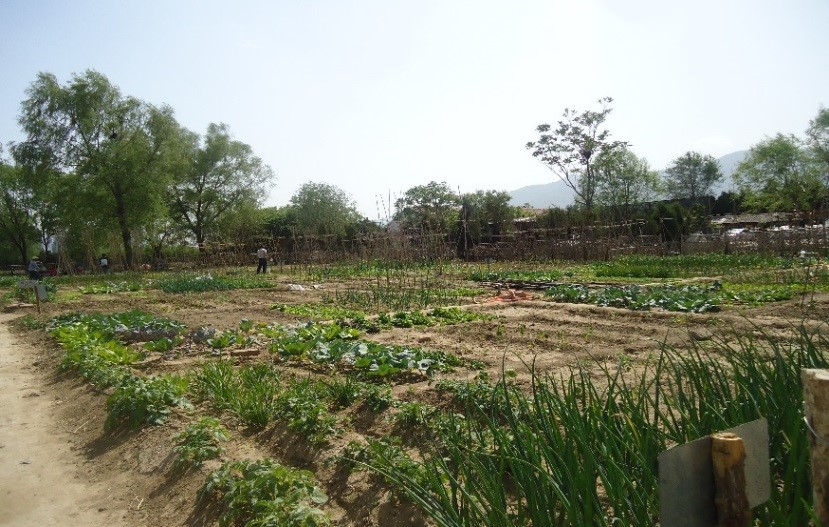Posted on May 19, 2017
With a population density of 143 people/km2 (≥400 people/km2 in coastal areas), boasting 20% of the world’s population (1.3 billion), China surely has many “secrets” to share, about how they have managed to become the second largest economy that boasts the second largest GDP in the world. China managed to reduce rural poverty from 50% to a mere seven percent between 2000 and 2014. The answer to how China achieved this cannot be reduced to a short article, however, the lesson for developing countries is to harness the potential of agriculture and the untapped resources found in rural areas.
In April, I responded to a call to participate in a rural development seminar in Beijing, China as part of a bilateral arrangement between China and South African National Department of Agriculture, Fisheries and Forestry. I snapped up the opportunity to participate in the three-week module. The 24 participants included officials from the South African Departments of Rural Development and Land Reform, Finance and National Treasury, the Universities of Pretoria and Walter Sisulu University as well as officials from ministries in developing countries including Tanzania, Uganda, Zimbabwe, Sri Lanka and Suriname. The seminar was hosted by the Academy for International Business Officials (AIBO); a training center of the Ministry of Commerce in the People’s Republic of China.
The Seminar included training together with site visits and travelling to cities outside Beijing (Hefei, Fuzhuo and Fujian) to learn about Chinese city infrastructure development. Visiting the rural areas highlighted China’s rural development progress, demonstrating similar achievements in rural villages as in urban areas. For example, the implementation of the Old Village Transformation, New Village Construction initiative resulted in collectively owned commercial opportunities such as Bote Biotech Co. Ltd., a company specializing in biotechnology; Xiyuan Aluminum production factory for construction and industrial use; 12 village-run smaller scale enterprises; industrial plants for buildings and machinery; commercial shops and more than 100,000m2 village assets.
The village visit exposed us to how local development decisions are made with the engagement of the local population to find solutions to problems. The cyclical nature of development foci was evident, with the return of many previously popular practices in recent years such as integrated ecological farming systems with rice and ducks. The rural development model encourages the growth of agriculture to boost labour opportunities and contribute to the food security of the country. The Xiyuan village has developed a one-stop service center that includes services for labour, security, the elderly and an orphanage. The village is further developing construction and town planning services to provide for housing developments, infrastructure and tourism. The village is on a route between bigger cities in the east and offers interesting tourist attractions reflecting rural life, culture and history; including ancestral temples, traditional folk life, cultural artifacts and music.
The experience showed that South Africa has a long road ahead to achieve equality, economic growth and industrial development in rural areas. The village visit showed us how effective communication with all stakeholders could achieve effective development. The village aims to improve the cohesion of all the villagers, the state and civil society through a village brochure, newsletter, on-line notifications and news updates, a monthly magazine, an Xiyuan official website and publicity column. This model could be adopted by South Africa to foster closer involvement of officials with communities and local ownership of development initiatives.

|
 |
|---|---|
|
Delegates visit to the Xiyuan village council offices and one of the village-owned organic farms |
A farm in Xiyuan village where urban dwellers can rent plots to farm |
Copyright © University of Pretoria 2024. All rights reserved.
Get Social With Us
Download the UP Mobile App